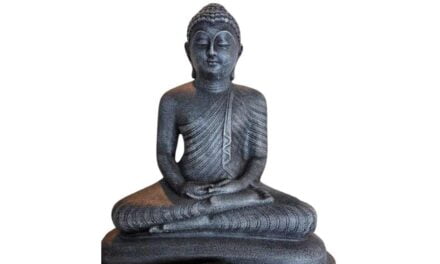The Journey Begins: Embarking on the Path of Enlightenment
Are you ready to embark on a transformative journey towards inner peace and self-discovery? At Buddha Nirvana, we invite you to explore the profound teachings of Buddhism and unlock the wisdom that has guided seekers for centuries.
As you set foot on this path, you may find yourself drawn to the simplicity and depth of Buddhist philosophy. The teachings of the Buddha offer a roadmap for navigating life’s challenges, cultivating mindfulness, and finding profound meaning in every moment.
The Power of Mindfulness
Central to the teachings of Buddhism is the practice of mindfulness, a powerful tool for bringing awareness to our thoughts, emotions, and experiences. Through mindfulness, we can learn to observe our minds without judgment, cultivating a sense of clarity and compassion.
By incorporating mindfulness into our daily lives, we can cultivate a deep sense of inner peace and learn to navigate the ups and downs of life with equanimity. Mindfulness allows us to fully engage with the present moment, finding joy and contentment in the here and now.
The Path to Enlightenment
The path to enlightenment, or Nirvana, is at the core of Buddhist philosophy. It is a journey of self-discovery, inner transformation, and the realization of our true nature. This path is not about escaping the world but rather about fully embracing it.
Through meditation, ethical conduct, and the cultivation of wisdom, we can gradually unravel the layers of delusion and attachment that obscure our true essence. The teachings of the Buddha offer practical guidance on how to live a meaningful and purposeful life, anchored in compassion, kindness, and wisdom.
Here are some specific ways that we can apply the teachings of Buddha to our daily lives:
- Be mindful of our thoughts and actions. When we are mindful, we are more aware of the choices that we make and the consequences of our actions. This can help us to make wiser choices and to avoid causing harm to ourselves or others.
- Cultivate compassion and kindness. When we are compassionate, we are able to see the suffering of others and to feel empathy for them. This can motivate us to help others and to create a more just and compassionate world.
- Let go of attachment. Attachment to things, people, and ideas can be the source of much suffering. When we are able to let go of attachment, we become more free and less vulnerable to suffering.
- Live in the present moment. When we are dwelling on the past or worrying about the future, we are not able to fully appreciate the present moment. The present moment is all that we have, so it is important to be present and to savor it.
The Eightfold Path can be divided into three categories: Wisdom (Prajna), Ethical Conduct (Sila), and Mental Discipline (Samadhi). Each category comprises specific practices and attitudes that, when cultivated, lead to inner peace and enlightenment.
- Wisdom: This aspect includes Right Understanding and Right Intention. Right Understanding involves gaining insight into the nature of reality, including the impermanence of all things. Right Intention emphasizes developing intentions of goodwill, harmlessness, and renunciation.
- Ethical Conduct: Right Speech, Right Action, and Right Livelihood make up this category. Practicing truthful and compassionate speech, refraining from harming others, and choosing a livelihood that doesn’t harm living beings are essential components of ethical conduct.
- Mental Discipline: Right Effort, Right Mindfulness, and Right Concentration form the final category. Right Effort involves cultivating wholesome thoughts and emotions while eradicating unwholesome ones. Right Mindfulness encourages awareness and presence in every moment. Right concentration focuses on developing a one-pointed and tranquil mind through meditation.
Buddha’s teachings emphasize that inner peace is not a passive state but an active process that requires self-awareness, mindfulness, and dedicated practice. By following the Eightfold Path, individuals can gradually free themselves from the cycle of suffering and attain a deep sense of inner tranquility and wisdom.
Meditation is a cornerstone of the Buddhist practice and plays a significant role in achieving inner peace. It involves training the mind to observe thoughts and emotions without attachment, thus creating a space for inner calm and clarity. Through meditation, individuals can gain insight into the impermanent and interconnected nature of reality, reducing the grip of suffering on their lives.
Another key aspect of Buddha’s teachings is compassion and loving-kindness. He taught that by cultivating compassion for oneself and all sentient beings, one can break down the barriers that separate us from others and find a profound sense of interconnectedness. This practice not only fosters inner peace but also contributes to a more harmonious and compassionate world.
In conclusion, the teachings of Buddha provide a profound and timeless guide to achieving inner peace in the midst of life’s challenges and uncertainties. Through the Four Noble Truths and the Eightfold Path, individuals can embark on a transformative journey towards liberation from suffering and the attainment of inner tranquility and wisdom. By incorporating meditation and compassion into their lives, they can walk the path to inner peace and, in doing so, radiate that peace into the world, fostering a more harmonious and compassionate global community. Buddha’s teachings continue to be a source of inspiration and guidance for those seeking a life of profound meaning, inner peace, and enlightenment.





